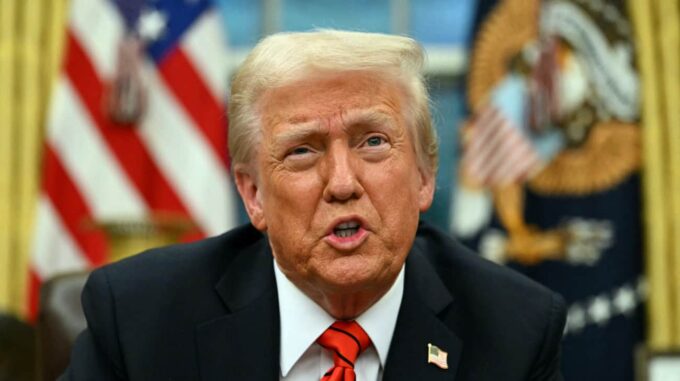Donald Trump Avoids Clear Answers Regarding the Status of Crimea in the Context of Possible Peace Negotiations Between Russia and Ukraine

In his comments, made during a recent briefing in the White House Oval Office, former U.S. President Donald Trump again demonstrated his ability to avoid unambiguous assessments on important issues concerning the Ukraine-Russia conflict. Specifically, in response to journalists’ questions, he completely refused to confirm or deny his position regarding the possible recognition by Ukraine of Crimea’s status after its annexation by Russia in 2014. Experts consulted on this matter note that such rhetoric indicates strategic ambiguity or a policy of deterrence, as well as a readiness to consider any scenario for the development of events. Journalists asked Trump whether he supports the idea of including a clause in peace terms that legitimizes Russian control over the Ukrainian peninsula. He replied briefly: “Well, everything is fine. I just want the war to end, I don’t care.” It is known that for the ex-president, the priority remains a quick and bloodless resolution to the conflict, regardless of the conditions and formulations regarding the status of the occupied territories. In subsequent comments, Trump did not hide his desire for the end of hostilities, emphasizing that for him, the result is what matters most, not the legal or formal aspects. “If both sides are happy, they will both sign the agreement. I have no favorites. I don’t want to have any favorites. I want an agreement to be reached,” he said, hinting at possible compromise solutions that, in his view, could stop the bloodshed. Regarding the negotiation process, Trump emphasized that his personal perception of the situation is optimistic: according to him, the negotiations conducted by his special envoy, Keith Kellogg, in London went well. He added that it is important “to get two strong and intelligent leaders — Zelensky and Putin — to agree,” because only then can hostilities be halted and peace restored in the region. Of course, his words received mixed reactions among Ukrainian politicians and international experts. An important shadow over this is cast by the Ukrainian position, which was solidified even before official negotiations and became a subject of internal debate. On April 22-23, ahead of training exercises, President Volodymyr Zelensky sharply stated that Ukraine has no intention of recognizing Russian occupation of Crimea. He emphasized that this peninsula remains Ukrainian territory, and any attempts to legitimize it by Kyiv are unacceptable. This firm stance of Ukrainian authorities was quickly echoed in Moscow and on the international stage, indicating that any attempts to change Crimea’s status are currently impossible. At the same time, Trump, criticizing this statement, expressed the view that “Crimea was lost many years ago,” and added that Zelensky’s words “hurt negotiations,” which, in his opinion, should have the chance for a more flexible approach and compromise. Meanwhile, diplomatic efforts continue in Kyiv. Government representatives, including Foreign Minister Andriy Yermak and Presidential Office Head Andriy Yermak, held a series of meetings on April 23 with European partners and U.S. Special Envoy Keith Kellogg. All these efforts aim to establish international support and find ways to continue the peace process that considers Ukraine’s interests and sovereignty. Thus, in such a difficult period of political and diplomatic games, the most attention is drawn to the behavior of leaders and their willingness to compromise. It remains unclear whether there is enough political will and diplomatic skill to overcome differences and achieve a real, just peace and the return of territories — including Crimea, which remains one of the most acute and painful topics in this complex geopolitical game.

